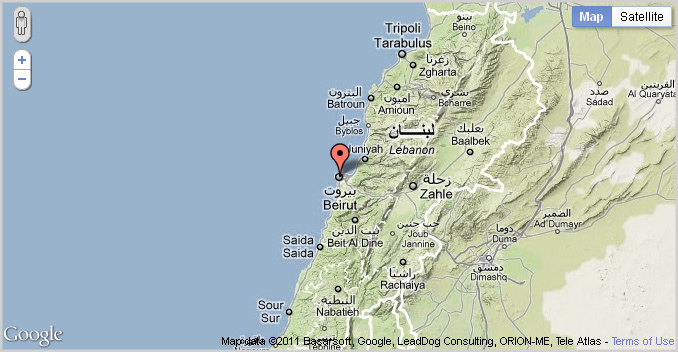|
• 1943: France agrees to officially transfer power to the Lebanese government from January 1, 1944, officially granting independence. • 1967: Lebanon plays no active role in the Arab–Israeli war but is affected in the aftermath due to Palestinian use of the country as a base for activities against Israel. • April 1975: Phalangist gunmen ambush a bus in Beirut, killing mainly Palestinian passengers. These clashes are regarded as the start of civil war. • 1976: Syrian troops enter Lebanon to restore peace. October 1976: Following Arab Summit meetings in Riyadh and Cairo, a ceasefire is arranged and a predominantly Syrian Arab Deterrent Force (ADF) is established to maintain it. • 1978: In reprisal for a Palestinian attack into its territory, Israel launches a major invasion of Lebanon and occupies land in the south. Israel later hands over territory in southern Lebanon not to the UN International Forces in Lebanon, but to its proxy, a mainly Christian Lebanese militia led by Maj. Saad Haddad. • 1982: President-elect Bachir Gemayel is assassinated. The following day, Israeli forces occupy West Beirut. His brother, Amine Gemayal, is elected president in his place. • 1983: Israel and Lebanon sign an agreement on Israeli withdrawal, ending hostilities and establishing a security region in southern Lebanon. • 1988: Outgoing President Amine Gemayel appoints a six-member interim military government, composed of three Christians and three Muslims, though the latter refuse to serve. Lebanon now has two governments-one mainly Muslim in West Beirut, headed by Salim El-Hoss, and the other, in East Beirut, led by the Maronite Christian Commander-in-Chief of the Army, Gen. Michel Aoun. • 1989: Aoun declares a “war of liberation” against the Syrian presence in Lebanon. • 1990: The Syrian Air Force attacks the Presidential Palace at Baabda and Aoun takes refuge in the French embassy. This is regarded as the end of the civil war. • 1990: Omar Karami heads a government of national reconciliation. • 1992: Rafik Hariri, a rich businessman of Saudi Arabian nationality, becomes prime minister. • 1993: Israel attempts to end the threat from Hezbollah and the Popular Front for the Liberation of Palestine-General Command (PFLP-GC) in southern Lebanon by launching “Operation Accountability,” the heaviest attack since 1982. • 2000: After the rapid advance of Hezbollah forces, Israel withdraws its troops from southern Lebanon, more than six weeks before its stated deadline. February 2005: Rafik Hariri is killed by a car bomb in Beirut. • 2005: Syria says its forces have left Lebanon, as demanded by the UN. An anti-Syrian alliance led by Saad Hariri wins control of parliament. The new parliament chooses a Hariri ally, Fouad Siniora, as prime minister. • 2006: Israel launches attacks on targets in Lebanon after Lebanon’s militant Hezbollah group kidnaps two Israeli soldiers. Civilian casualties are high and damage to civilian infrastructure wide-ranging. • August 2006: Truce between Israel and Hezbollah comes into effect on August 14, after thirty-four days of fighting and the deaths of around 1,000 Lebanese—mostly civilians—and 159 Israelis, mainly soldiers. A UN peacekeeping force, expected to consist of 15,000 foreign troops, begins to deploy along the southern border. • October 2008: Lebanon establishes diplomatic relations with Syria for first time since both countries gained independence in 1940s. • 2009: The pro-Western March 14 alliance wins 71 of 128 seats in parliamentary elections, while the rival March 8 alliance led by Hezbollah secures 57. Saad Hariri is nominated as prime minister. • 2011: The national unity government collapses due to growing tensions from the Special Tribunal for Lebanon. • 2011: Since 2011, violence from the Syrian civil war has spilled over into Lebanon, leading to an increase in sectarian violence. |
|
[map id=”countryBriefMapIn” w=”676″ h=”350″ z=”8″ maptype=”TERRAIN” address=”Beirut, Lebanon” marker=”yes”]

